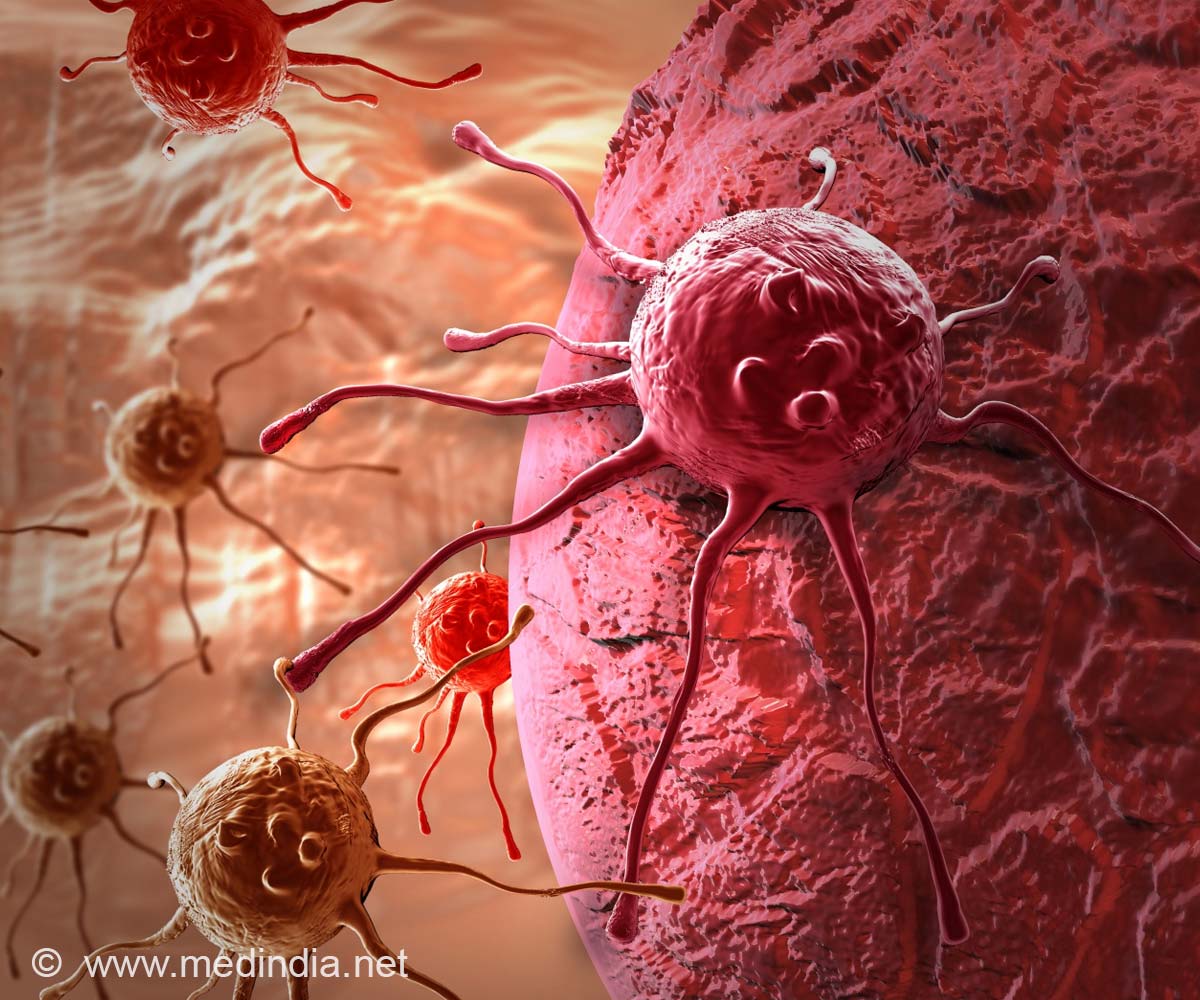Human breast cancers grown on mice show marked reductions in inflammatory cytokines when the key enzyme MLL1 was blocked.

‘Genetic and pharmacological inhibition of the enzyme, called MLL1, in both human cells and mice prevents the deleterious activation of the DNA damage response.’





Aged and damaged cells frequently undergo a form of proliferation arrest called cellular senescence. These fading cells increase in human tissues with aging and are thought to contribute to age-related increases in both cancer and inflammation. The secretion of such inflammatory compounds as cytokines, growth factors, and proteases is called the senescence-associated secretory phenotype (SASP). In a study published in Genes & Development, genetic and pharmacological inhibition of the enzyme, called MLL1, in both human cells and mice prevents the deleterious activation of the DNA damage response, which causes SASP expression.
"Since tumor-promoting inflammation is one of the hallmarks of cancer, these findings suggest that MLL1 inhibitors may be highly potent anti-cancer drugs through both direct epigenetic effects on proliferation-promoting genes, as well as through the inhibition of inflammation in the tumor microenvironment," said first author Dr. Brian Capell, a medical fellow in the lab of Dr. Shelley Berger, the Daniel S. Och University Professor in the Departments of Cell & Developmental Biology, Genetics and Biology.
Berger is also the director of the Penn Epigenetics Program. Capell is an instructor and attending physician in the Department of Dermatology and is a postdoctoral fellow in the Berger lab.
The mechanism of this inhibition is through the direct epigenetic regulation by MLL1 of critical proliferation-promoting cell cycle genes that are required for triggering the DNA damage response in the body. MLL1 is an enzyme that adds methyl groups to loosen chromatin, the proteins around which DNA winds, so that part of the genome can be "read" and translated into proteins - its epigenetic role. However, MLL1 is also commonly mutated in numerous human cancers, particularly in pediatric and adult blood cancers.
Advertisement
Knowing that MLL1 has been implicated in cell-cycle regulation, when the researchers inhibited MLL1, proliferation-promoting genes were shut down and the DNA damage response and resulting inflammation was suppressed. Indeed, in the case of applying this result to fighting cancer, this is a desired effect, since an increase in inflammation can promote both the development and progression of cancer.
Advertisement
Source-Medindia















